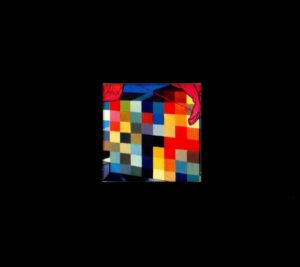
There are certain bands that one should never cover lightly or ill-advisedly. It may be because their songs have entered the cultural lexicon in a way that no cover can ever hope to supplant, or it may be that simple familiarity will vex any attempt to offer up the music with anything new or relevant to add. Pink Floyd are one such band. Covers of the Floyd, for the most part, range from pointlessly faithful (Dream Theater) to distressingly novelty (Scissor Sisters, take a bow). Typically, it is only those bands who have headed deep into the back catalogue who have managed to disarm the curse and so, when I read that Kyle Shutt of The Sword planned to release a full-blown cover version of the entire Dark Side of the Moon album, it was hard to supress a groan. Not only was he going to cover the Floyd, but he had picked out one of the most feted records of all time. Although curious as to the nature of the tribute (timed to coincide with the band’s fiftieth anniversary) that Kyle intended to pay, ultimately I struggled to believe that the results could be any good.
I was wrong.
Very, very wrong.
Although faithful to the intent and feel of the source material, Kyle Shutt’s ‘Doom Side of the Moon’ spins the concept out into an alternate universe where Messrs Gilmour and Waters were in thrall to Black Sabbath in 1973, maintaining the progressive aspects for which the band are justly famed and filtering them through a woozy, lysergic lens whilst adding monstrous walls of guitar to render the heavy elements that were oft-present in the Floyd, but rarely allowed to shine (‘the Nile song’ and ‘in the flesh’ notwithstanding) in a far brighter light. Following the album’s track list exactly, ‘Doom side of the Moon’ replaces ‘speak to me’ with a vicious scree of feedback before wrong-footing the listener with a surprisingly beautiful, acoustic rendition of ‘breathe (in the air)’. At this early stage in proceedings, it seems that Kyle is apt to remain close to the source material, only to head to the stars with the brutal ‘on the run’, which is pitched somewhere between Sleep, Spiritualized and Sabbath. Huge percussive blasts and devastating layers of feedback pierce the wrecked and fizzing synths of the original track, summoning to mind the wrecked stages Nirvana abandoned at the conclusion of ‘endless nameless’, before ‘time’ is announced with a gigantic riff poured through a wall of overloaded Orange amps, their dials maxed out and their tubes glowing in the otherwise impenetrable gloom. It’s still recognisably Floyd and Kyle has sensibly maintained the clean vocals, but the delivery is laced with amphetamine, offering a perfectly-pitched tribute to the immense influence Floyd have had on modern music and, of course, on heavy metal. The first half concludes with the woozy ‘The great gig in the sky’, wherein Kyle wisely lets his foot slip away from the gas. Eschewing Clare Torry’s frankly irreplaceable vocalisations for jazzy saxophone and a mind-expanding final few seconds, the first half of the record ends triumphantly.
Despite my love for both Floyd and ‘DSotM’, ‘Money’ has long been one of my least favourite Floyd tracks. Despite the stinging lyric (so cruelly lampooned by the sardonic Teacher in ‘The Wall’), the music never spoke to me in the way that the rest of the album did. Kyle, however, saw something in the track that I never did, and he brought it to life for me in a way that I had never previously thought possible. Reworked in the manner of Sabbath’s genre-defining ‘Paranoid’, ‘Money’ is rendered here as a show-stopping, heavy metal anthem complete with jazzy, Deep Purple-esque breakdown and blistering solos. It is a towering success and, in many ways, stands as the album’s high point. In contrast, although impressive, the acoustic strum of ‘us and them’ lacks the sheer magic found in the original’s interplay between Gilmour and Wright. In many ways, this stripped-down version Kyle offers is probably the best anyone could hope to achieve in the face of so perfect a track and it builds nicely to an epic conclusion that then segues into the paranoid meltdown of ‘brain damage’. Given an even more schizophrenic feel thanks to the industrial percussion and jazzy saxophone, the track now recalls nothing so much as latter-day Ulver before the album concludes with the short coda ‘eclipse’ (essentially a show-stopping finale to ‘brain damage’).
It takes balls of steel to cover ‘Dark Side of the Moon’ and previous attempts (including the frankly bizarre version offered up by the Flaming Lips) have not been terribly successful. Kyle Shutt, however, knows his source material inside out, reveres it, but understands how to filter it through the lens of his own particular talent. As a result, he offers ‘Doom Side of the Moon’ as both a companion piece to the original and a fitting tribute to one of the finest bands ever to grace the stage. I truly did not think that ‘Doom Side of the Moon’ would gather more than a play or two, just to see in what novel ways the material had been interpreted, but in actual fact, it is a hugely enjoyable release in its own right, faithful enough to please even the most ardent Floyd fan and yet different enough to highlight how the songs might have sounded if the band had followed a metallic path. Put aside any preconceptions you may have and embrace this wonderful tribute in the spirit in which it was intended – you won’t regret it. 9



